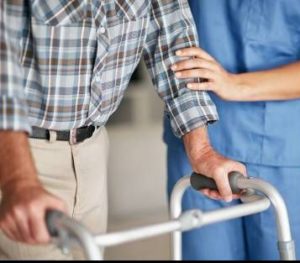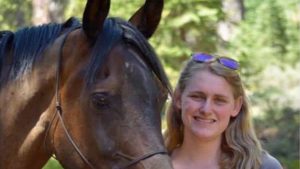
Art Therapy
“One of the basic rules of the universe is that nothing is perfect. Perfection simply doesn’t exist…..Without imperfection, neither you nor I would exist” ― Stephen Hawking




She was 48 when she died this week. Her name was Bibian Mentel, and she was a champion Dutch snowboarder who won the gold in the winter Paralympic games of 2014 and 2018. Her right leg was amputated below the knee in 2000, because of a tumor on her tibia – a recurring cancer that appeared first in 1999. Since then, she did not give up, and continued competing and winning in spite of the recurring cancer for the next 20 years. Prince Constantine, King Willem-Alexander’s younger brother, tweeted: “Thank you for everything you have given and shared with us. Everyone you touched with your optimism and persistence has become a better person.” This story touched me personally, since lately I encountered several cases of amputees in my swimming pool and was moved and worried when a close friend and colleague’s husband underwent a life-saving amputation of his leg below the knee. The struggle to survive, to persist with exercises, physiotherapy, and constant pain, is a heroic act of daily effort. Ghost pains in the leg are a constant reminder of the loss. And he is bearing it all with a grin, walking with crutches a bit, and even cooking a meal in the kitchen for the family from his wheelchair. The unsung heroes are the caregivers – in most cases the partner, if the amputees are so lucky to have one.

I am familiar with this difficulty since childhood, when my own father was in need of care, and then when he was stronger, my mother still had to contend with his changed body. No, he was not amputated, but had been in a World War II work camp, had been operated on, and had a colostomy. He was also experimented on with radium. The burns prevented him from sitting or lying down for a long period. The pain necessitated the use of opium, which he became addicted to. My mother, who was a pharmacist, diluted the opium with saline, so that he could recover in time to join us for the arduous journey to Palestine in 1944 on a Turkish fishing boat. How lucky for us that he understood Turkish, and overheard the deck hands telling of the planned transfer of the boat to the Germans the next morning. Because of that we were saved. The captain was “persuaded” to change course, and we hugged the Bulgarian fjords for 3 weeks, without extra food or water. Even though I was only 3 years old, I do remember, or more accurately, my body remembers the trip. I can still identify the smell, or stench, of the boat. I recognized pictures that I encountered later as a nurse, I had flashbacks later in life and even an episode of dissociation when I encountered a replica of the boat and suitcases in a museum. But we stayed alive, my parents, my 15-year-old brother and I. As I write this today, on Holocaust Memorial Day in Israel, so many things come back. For years later the intimate relationship between my parents was strained. My mother was not able to adjust to the changed body of my father.
As a registered nurse, working in the hospital, I came across many cases of changed bodies, and had to develop tolerance and empathy. In my own existence I had to adjust to many physical changes, and was able to help my partner accept those changes and develop a healthy intimate relationship. As a therapist, I encounter people who need guidance and help to accept new realities. I also realize the importance of doing your own therapy journey in order to be free of biases and be able to listen to the clients with empathy, and guide them to be able to be there for their spouses. I read an interesting comparison of the journey of couples throughout life. The article was about a 100-mile horse race. It talked about the partnership, the dedication, and the commitment. These races are about passion and going the distance. They are not for the uncommitted. The 100-miler is not for the meek, the timid, or the uncommitted. It is a test of everything the rider has ever learned. It is a testament to the horse/rider team and their ability to go into a zone of competition that takes no prisoners. It is about being an explorer, an adventurer, and a warrior, all at the same time. It is about the character of endurance. The way I see it, respect also plays a part in the race, as in life with a partner. Respect helps to build more effective teamwork. Another essential ingredient is endurance, which helps to strengthen commitment to the partnership for the long run.  An 18-year-old, Sanoma Blakeley, won one of these races this year. After galloping out at 5:15 AM near Truckee, California, she and Goober, her horse, endured three canyons, multiple river crossings, and epic elevation changes while traversing 100 miles on the Western States Trail. “It was just a lot of time conditioning,” Blakeley said. “You get out what you put in.” Perhaps this is a strange comparison, but teamwork is a key to life. We are born to connect, and connection builds teams. As the popular saying goes, it takes 2 to tango, or the old song “love and marriage, love and marriage, go together like a horse and carriage… you can’t have one without the other,” which Frank Sinatra sings so beautifully. However, even when that is true, we still need to work hard in order to make it last… forever?
An 18-year-old, Sanoma Blakeley, won one of these races this year. After galloping out at 5:15 AM near Truckee, California, she and Goober, her horse, endured three canyons, multiple river crossings, and epic elevation changes while traversing 100 miles on the Western States Trail. “It was just a lot of time conditioning,” Blakeley said. “You get out what you put in.” Perhaps this is a strange comparison, but teamwork is a key to life. We are born to connect, and connection builds teams. As the popular saying goes, it takes 2 to tango, or the old song “love and marriage, love and marriage, go together like a horse and carriage… you can’t have one without the other,” which Frank Sinatra sings so beautifully. However, even when that is true, we still need to work hard in order to make it last… forever?